Post
A catch
Save a catch to start your fishing logbook. You will be able to to share it with the community if yo want!
A fishing trip
Post an ad to go fishing with other fishermen
Save a catch to start your fishing logbook. You will be able to to share it with the community if yo want!
Post an ad to go fishing with other fishermen
Share a thought, a question with the community
My favorite cities
×Join our 2 fishermen in Rising-Fawn in Dade. The fishing forecast is currently 2.8. The most caught fishes here are the westlope cutthroat trout, the blueback herring, the steelhead trout and the bull trout. Come try the most famous fishing techniques like the fishing bream from a dock or jetty, surfcasting, deep-sea fishing or angling - using natural bait.
Our fishing forecast of Rising Fawn indicates the best time to go fishing in this city.
The Westlope cutthroat trout
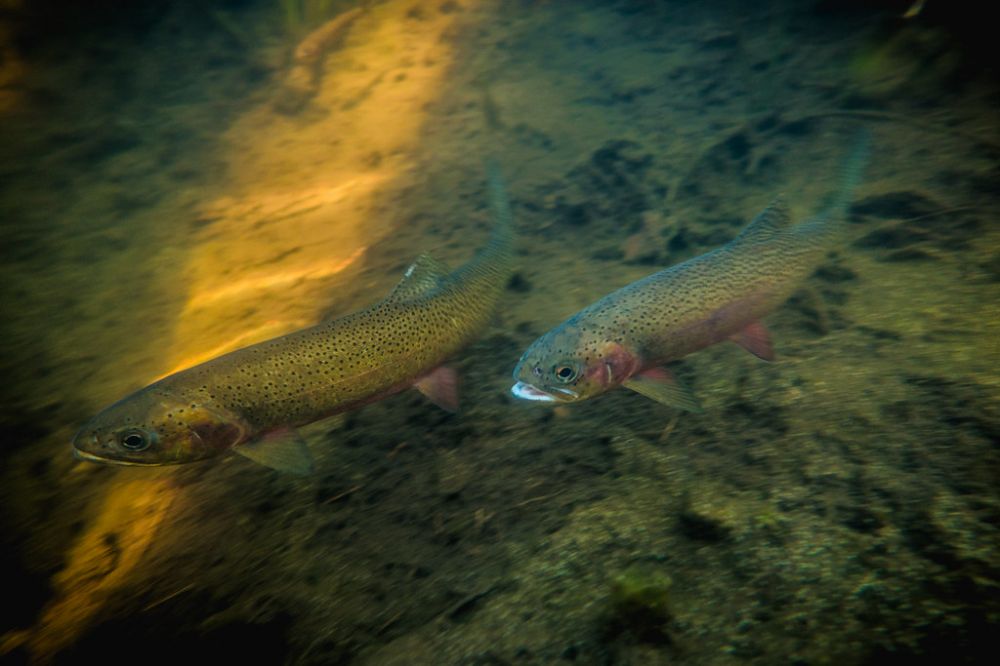
The Westlope cutthroat trout belongs to the Salmonidae Family. The average length of the fish is about 30 cm and rarely exceeds 46 cm. It has an average life span of 2 to 5 years. They breed in the spring. Fishing is prohibited because this fish is endangered. The fish has teeth under the tongue, on the roof of the mouth and on the front of the mouth. The gorge cutting the western slope is common in the waters of lakes and rivers upstream. The skin has small dark freckle-like spots, grouped towards the tail, and is mainly orange in color. They are distinguished from rainbow trout by the red, pink or orange markings under the jaw.
The Westlope cutthroat trout is a famous fish you can catch in Rising Fawn.The Blueback herring
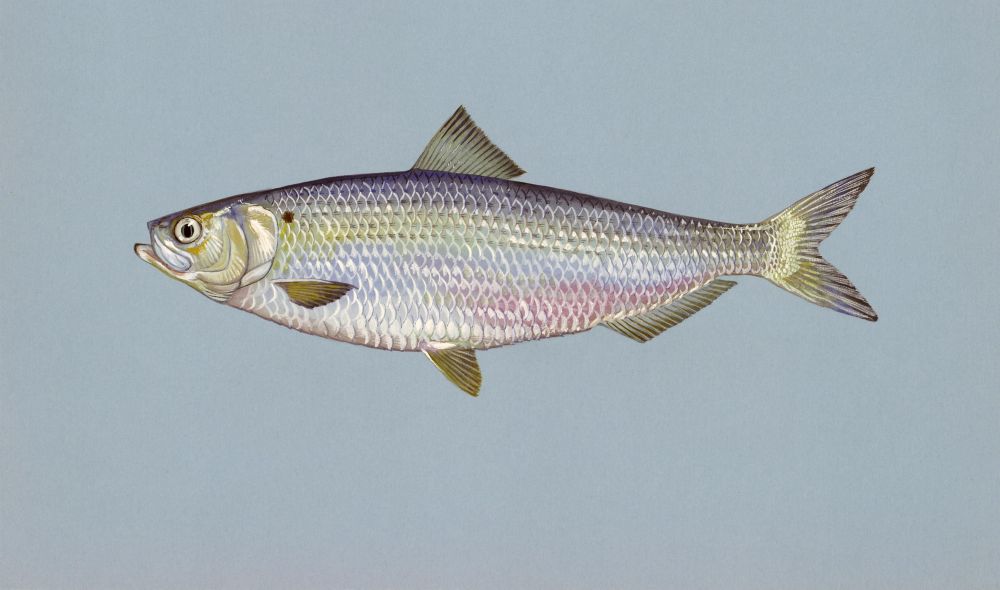
The Blueback Herring belongs to the Clupeidae Family. They reach a maximum size of about 40 centimeters and are assumed to live up to 8 years. They spawn from mid-March to the end of May. The Blueback herring can be fished all year round. These fish are silvery in color, have a series of scutes along their bellies and are characterized by a deep blue-green back. What distinguish this fish the most from other species is the black to dark color of its peritoneum (the mucous membrane of the abdominal cavity). It is one of the "distinctive" North American shads. They are often confused with alewives because it is difficult to differentiate between blue shad and alewife and, together, these two species are often considered collectively as "river herring". Female have larger eyes, greater body depth and a pearl to peritoneal white lining.
The Blueback herring is a famous fish you can catch in Rising Fawn.The Steelhead Trout
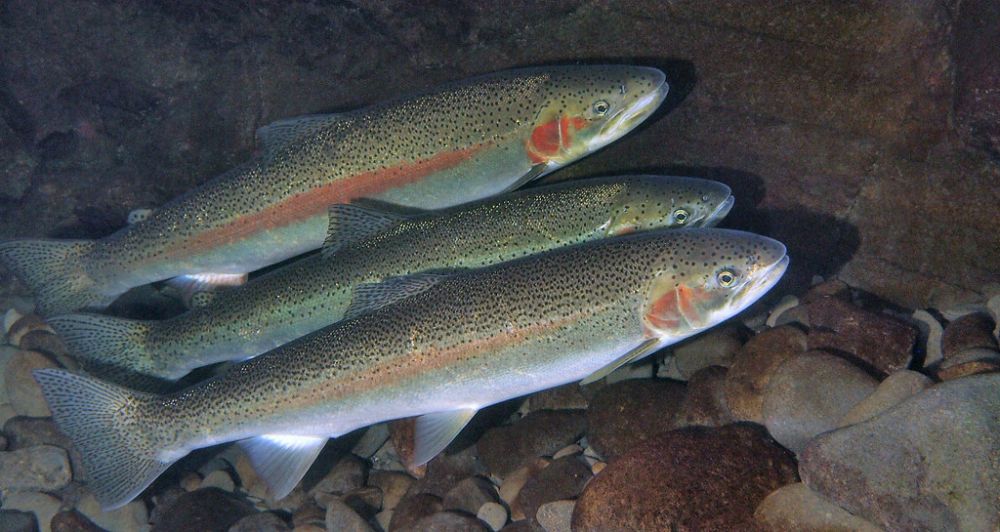
The Steelhead trout belongs to the Salmonidae family. Steelhead trout is a name given to the anadromous form of red-band trout (O. m. Gairdneri) or coastal rainbow trout (Oncorhynchus. M. irideus). Steelhead trout can weigh up to 26 kg and reach a length of 114 cm. He can live 11 years. It breeds from January to April. It is fished from the end of October to the month of November. Steelheads trout generally have a more refined shape and a silver or copper color when they reach adulthood, which is why they are called them.
The Steelhead Trout is a famous fish you can catch in Rising Fawn.The Bull trout
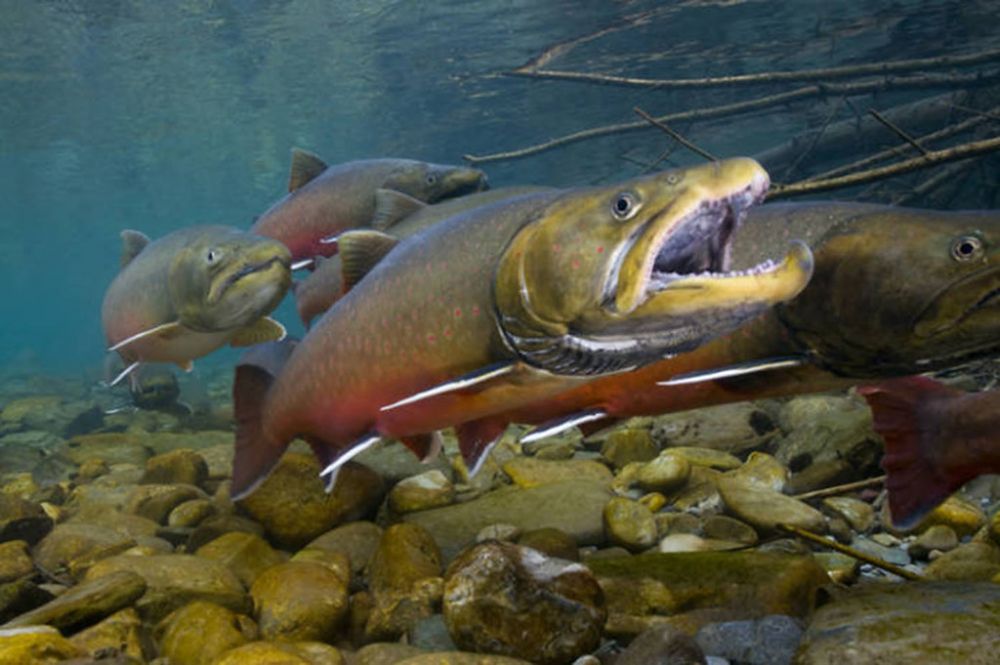
The Bull trout belongs to the Salmonidae family. It can measure up to 103 cm long and weigh up to 14.5 kg. It can live for a dozen years. It breeds from July to December. It can be fished from June to February. Like other arctic char species, the fins of a bull trout have white leading edges. Its head and mouth are exceptionally large for salmonidae, which gave it its name. Bull trout up to 103 cm long and weighing 14.5 kg have been recorded. Bull trout can be migratory, moving through major river systems, lakes and the ocean, or they can be resident and remain in the same river all their lives. Migratory bull trout is generally much larger than resident bull trout, which rarely exceeds 2 kg. Bull trout differs from brook trout (S. fontinalis) in the absence of distinct spots on the dorsal fin, as well as yellow, orange or salmon spots on the back, as opposed to red spots with blue halos on the trout stream. Bull trout do not have the deep-dug caudal fin of lake trout (S. namaycush, another Arctic char).
The Bull trout is a famous fish you can catch in Rising Fawn.The Moapa Dace
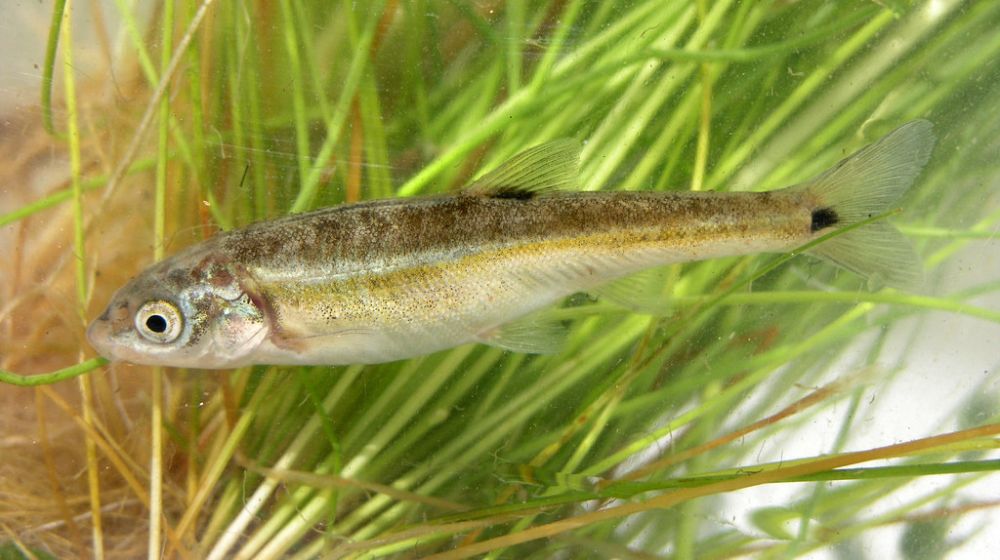
The Moapa Dace belongs to the Cyprinidae family. It has an average size of 10 to 13 cm. It has a lifespan of 4 years old. It may spawn throughout the year with a maximum activity in spring. It is an endangered species so the fishing is prohibited. It is a small fish with a short head, a terminal mouth and thick, semiconducting lips. The dorsal fin begins above or slightly behind the insertion of the pelvic fins and the caudal fin is forked. The dorsal color is dark, the sides are brownish with slightly golden areas and the ventral color is light. There is a dark spot on the tail and a dark line on each side of the body. The scales are small and deeply inlaid and the skin looks like leather. Some dace species have a small maxillary barbell, but not the species.
The Moapa Dace is a famous fish you can catch in Rising Fawn.Our fishing forecast of Rising Fawn indicates the best time to go fishing in this city.
Our fishing forecast of Rising Fawn indicates the best time to go fishing in this city.
Our fishing forecast of Rising Fawn indicates the best time to go fishing in this city.
